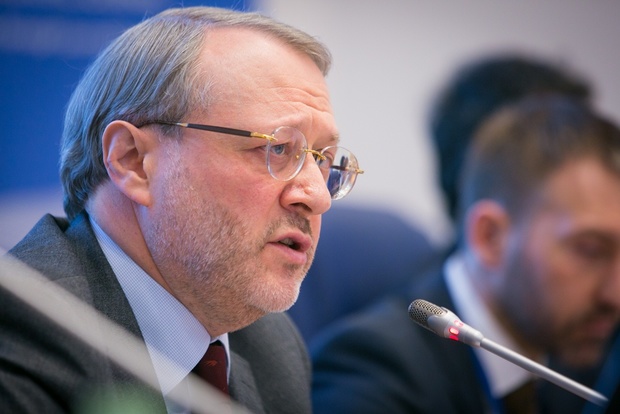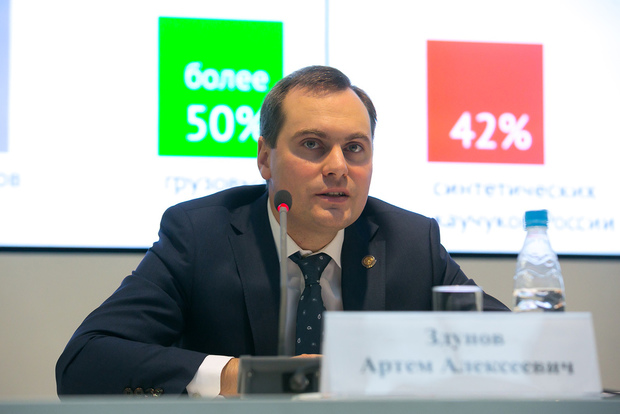About how the team of Sobyanin was defeated by the team of Minnikhanov in ‘the innovation match-2015’
Tatarstan has reached a new peak in a series of ratings of economic development of the Russian regions
The creators of the rating of innovative development of the regions of Russia (do not to be confused with the rating of investment climate!), the representatives of the Higher School of Economics and the Ministry of Economic Development of the Russian Federation have recently announced that Tatarstan has taken the first place for the first time. The representative of Tatarstan, the Minister of Economy Artyom Zdunov, took part in the video conference Moscow-Kazan. He told about how the Republic has managed to succeed. Following the course of the discussion, the correspondent of Realnoe Vremya learned that RT is still 'has the reserves' — we have the low participation rate of SMEs in innovation development yet. Meanwhile, Moscow continues to live due to 'the fat' accumulated during the Soviet times…
A new technological wave
Before the announcement of the results the First Vice Rector of the Higher School of Economics Leonid Gokhberg told that today the innovative industry of the Russian Federation, as well as the economy as a whole, faces a number of challenges, 'the alternative sources of growth':
'This was said at the St. Petersburg Economic Forum. Today, a new technological wave — the new industrial revolution or 'Industry 4.0', the new 'blasting' technologies in the energy industry (for example, it is expected the change in the logic of energy industry and other industries). The competition on the global market for investments and labor is being intensified. Unfortunately, in Russia, the private business is not involved enough in the development of promising sectors in Russia — for us it is a challenge! And all this is in conditions of difficult political situation,' the expert warned.
Gokhberg advised the regions to decide on a specialization ('smart'), to find niches in the development of new technologies, new industries, 'to consider the evidentiary serious regional projections, including the strategy of innovative development'.

Alas, not all regions of Russia are involved in the promotion of innovation policy: 'the third part of the regions is in sleep mode now'. The closer to the practice and the more specific the measures for innovative development of the rating, the less regions implement them. Less than a quarter of regions have highlighted the priority development of innovations in the scheme for the planning of regions. Less than a third of the regions have development institutions with specific functionality. On the other hand (here in the voice of Gokhberg there appeared an ironic intonation), with programme documents and 'meetings' the situation is positive! He expressed hope that the regions are not constrained only by them.
However, even if the regions have innovation strategies, it's not necessarily that they lead to the development of innovative industries. Many strategies 'do not have long-term measurements, are not oriented on major technological changes today'.
Tatarstan has dislodged Moscow from the first position – how that could be?
Finally, turning to the rating, Gokhberg announced that Tatarstan has become the leader. All these years, Tatarstan though took the highest positions but not reached the first place, conceding to Moscow.
'We have analyzed the success factors of Tatarstan. This is largely due to the efforts of the authorities!' Gokhberg pleased Artyom Zdunov. 'The support of innovative activities by the authorities give the results. However, Tatarstan takes leading positions not in every aspect. I hope that the region will do analysis, solve the problems and strengthen its leading position. Since there are regions that are dynamically developing...'

So, the Republic should be wary of breathing in the back three leaders — Mordovia, which for the year rushed from 18th to 4th place! Among 12 regions, in addition to Tatarstan and shifted to the second place Moscow, there are St. peterburg, Mordovia, Kaluga, Nizhny Novgorod region and Tomsk region, Chuvashia, Khabarovsk Krai, Penza, Novosibirsk Oblast and Krasnoyarsk Krai.
Evgeny Kutsenko, the head of the Cluster Policy Unit of the HSE, explained due to which indicators RT has managed to dislodge the Muscovites from the pedestal: due to the increase of scientific potential and innovative enterprises. The socio-economic indicators of the Republic of Tatarstan exceed the national average.
'Tatarstan is a hard worker'
'The leadership of Tatarstan in the high-tech industry is very noticeable, the proportion of people employed in the industries is very high. On the other hand, despite the scientific leadership, the costs for science and staffing are low relative to average costs in the country!' he warned Zdunov. 'At the same time in Tatarstan the innovative scientific field employs many young people, 52-53% of research workers are under the age of 39 years. This figure is better than in Moscow and St. Petersburg. Excellent results of Tatarstan are on the performance of science, technology exports, patents.'
Besides, Tatarstan is the leader in the intensity of expenditures on innovation in industrial production. Thus, the proportion of 'innovation costs' in the revenue of companies in RT is 6% (for comparison, in Moscow — 0.5 %; in St. Petersburg — 1.6 %). Tatarstan leads in the attraction of federal funds (ranked 2nd), but Kutsenko noted that Tatarstan has taken the lead not only because of the federal golden rain.
'We can see that it's not a coincidence that Tatarstan has taken the first place. This is the result of extensive work on improving of the performance of science, a number of indicators of innovative activity. Tatarstan is a hard worker and, therefore, it has taken the first place,' the expert concluded.

What are the problems of the Sobyanin's team?
What has happened to Moscow? — the experts, creators of the rating of the HSE, asked themselves. Since 2008, Moscow used to take the first place, and now the second… At the same time, it is still the capital of the Russian Federation which the leader in the socio-economic indicators. High salaries. Educational potential. Strong Science. But all this is the old base, which was developed a long time ago, said Kutsenko (read: first of all, in the Soviet times). But Moscow demonstrates the low innovative activity of the enterprises and the quality of innovation policy – it is on the 11th place. Why? First, in 2014, a number of documents regulating the field of innovation were repealed. In 2015, it was even canceled the law regulating this field, but a law on industrial policy was adopted… 'It is something to think about...' The big difference from Tatarstan is that Moscow fell in 11 indicators. The number of students has decreased. The capital also fell according to 'the pressure coefficient of fixed assets': the share of new funds introduced during the year is low (that is, again, Moscow lives at the expense of past work). The share of costs for the development of the business sector is extremely low. The share of young researchers is not comparable to Tatarstan. But according to the magnitude of wages and the relative wage of scientists to the average salary of workers of Moscow, the capital takes the lowest ranking (77th place!). 'Life for the scientists in Moscow is not easy,' commented the scientists of the HSE.
At the same time, Moscow has strengths: unlike Tatarstan, the capital's small business puts a lot more effort in innovation. Nevertheless, it is clear that the new crew of Sobyanin lives due to the developments of the past, not using enough potential. While Kazan, St. Petersburg and Mordovia are catching up with the capital of Russia.

'Thank you for reminding about the reserves'
Commenting on the success of Tatarstan, the Economy Minister Artyom Zdunov answered the question of the creators of the rating 'why Tatarstan has become the leader':
'Thank you for reminding about the reserves…' admitted the disadvantages the Minister of RT. 'As for the results of the rating, Tatarstan is improving its innovative and investment climate – two inseparable things… Our strengths – the close cooperation with the universities. We have many Scientific and Technological Centres at the enterprises, including at KAMAZ and Nizhnekamskneftekhim. Innovations are impossible without science. Besides, we have managed for three years to create the network of engineering centres in all fields (biotechnology, metal processing, medicine, etc.) It has been said that we have a lot of young scientists. So, they work not only in the universities but also in the engineering centres, in the Scientific and Technological Centres. We are creating necessary infrastructure, the centres of cluster development.'
Leonid Gokhberg, answerinf the question whether Innokam will be efficient and when there will be the real result (moreover, the actual impact of the petrochemical industry in Tatarstan takes plave already today) said the the Kama cluster is one of the leading in the Russian Federation.
'It is professionally arranged. There is the actual interacting between the enterprises and science, universities. I think it has all chances in the programme 'Cluster 2.0', initiated by the Ministry of Economic Development of Russia. I think that the situation in the oil and gas market, the inevitable re-orientation of the world and Russian economy on the products with high degree of processing and higher value-added cost will also affect the Tatarstan economy. We have recently consulted Tatneft on the petrochemical productions. And Tatarstan here has significant competitive advantages,' noted the expert of the HSE.
Reference
- Leonid Gokhberg, the First Vice Rector of the Higher School of Economics
- Evgeny Kutsenko — the head of the Cluster Policy Unit of the HSE
- Aleksey Besprozvannykh — the director of Department of Regional Policy
- Rustam Khafizov — the Minister of Economic Development of the Russian Federation